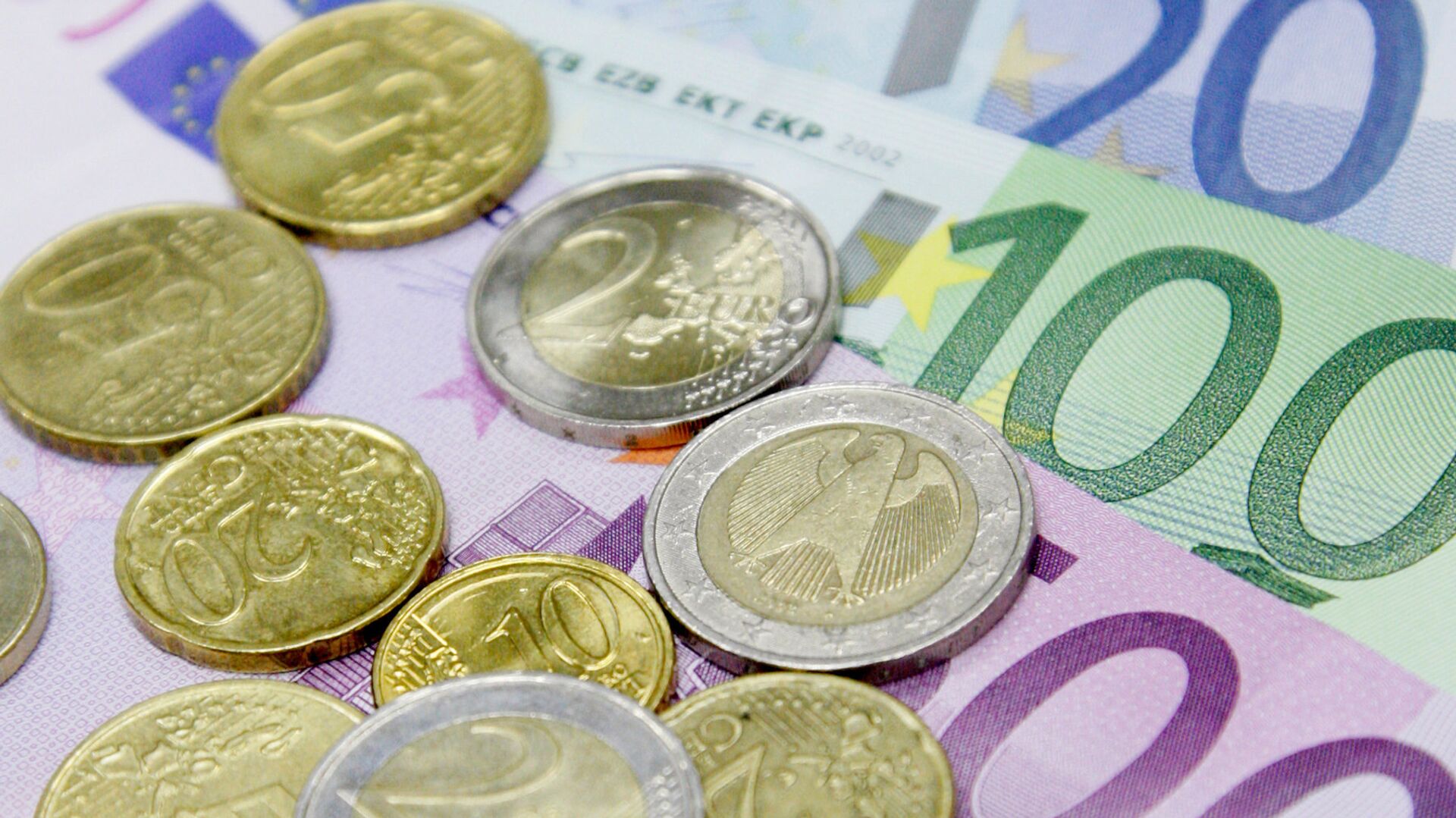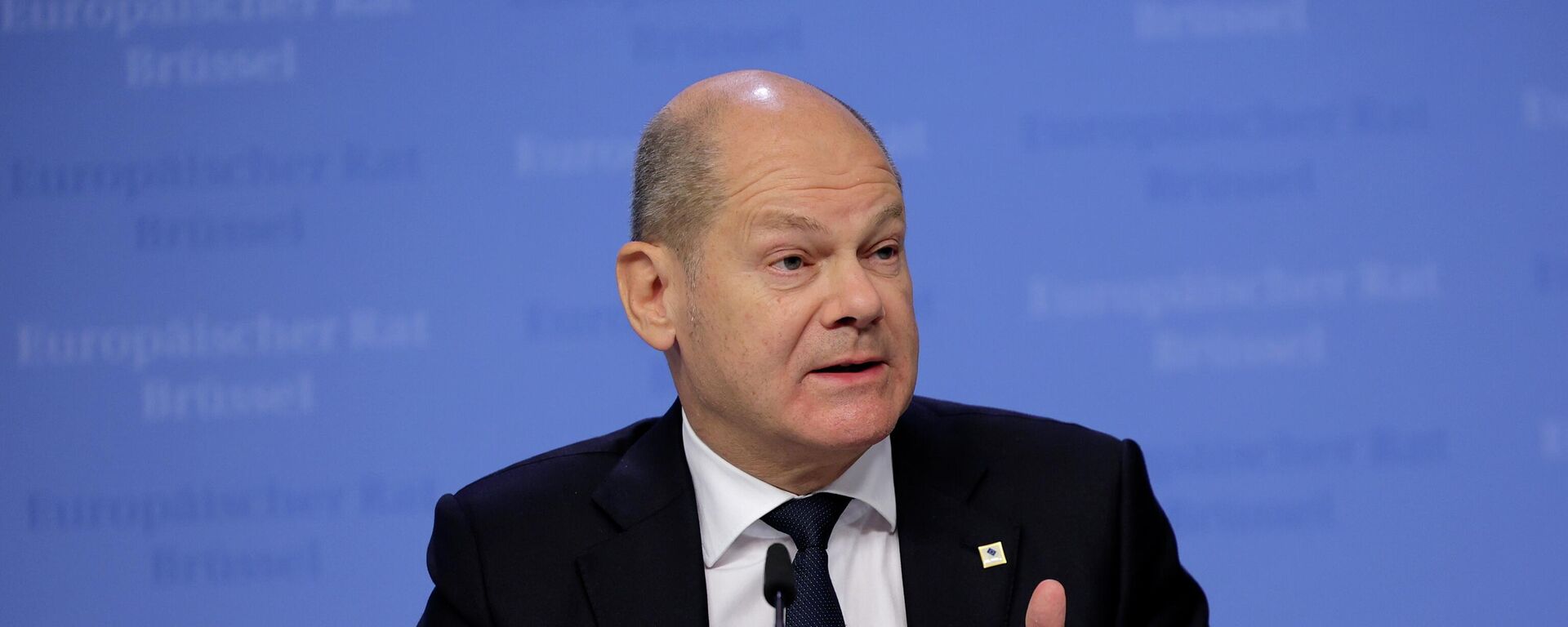https://sputnikglobe.com/20230722/eu-unable-to-seize-russian-assets-under-the-guise-of-helping-ukraine---media-1112061083.html
EU Unable to Seize Russian Assets Under the Guise of Helping Ukraine - Media
EU Unable to Seize Russian Assets Under the Guise of Helping Ukraine - Media
Sputnik International
While many European leaders seem eager to effectively plunder the Russian assets that were frozen in Europe last year under the pretext of helping rebuild... 22.07.2023, Sputnik International
2023-07-22T13:02+0000
2023-07-22T13:02+0000
2023-07-22T13:02+0000
world
russia
european union (eu)
european central bank
assets
frozen assets
sanctions
https://cdn1.img.sputnikglobe.com/img/102495/97/1024959725_0:371:1805:1386_1920x0_80_0_0_eec2a784ed15626e01bcd544eaafec81.jpg
Eager to jump on the US-led anti-Russian sanctions bandwagon, the EU governments ended up freezing over $200 billion worth of Russian assets, ostensibly to punish Moscow for its role in the escalation of the Ukrainian conflict last year.However, the European powers now face the realization that seizing these funds or the revenues generated by these funds may not be a good idea, one British newspaper notes.According to the media outlet, the European Central Bank and some of the EU finance ministers worry that such move may undermine the reputation of euro and the European government bonds in the eyes of other central banks.These critics thus argue that the EU should act “in tandem” with other G7 states in order to “share” the inevitably ensuing reputational loss, though some point out that the damage was done the moment the Russian assets were frozen.Proposals to demand the entities holding the frozen Russian funds to put these funds into “higher-yielding investments” and then direct the profits to an “EU fund” have been mooted as well, due to concerns that potential losses on these investments may result in European taxpayers being “liable for making whole the Russian Central Bank.”Following the escalation of the Ukrainian conflict in February 2022, the United States and its European allies froze the assets of the Russian Central Bank that were stored in US dollars and euro.While Moscow described this move as a an outright theft, the actions of the US and European governments have resulted in a serious blow to the reputation of the American and European economies in the eyes of foreign investors, and even sparked talks about the need for de-dollarization.
https://sputnikglobe.com/20230626/germany-opposes-use-of-russian-frozen-assets-for-ukraines-rebuilding-1111468802.html
russia
Sputnik International
feedback@sputniknews.com
+74956456601
MIA „Rossiya Segodnya“
2023
News
en_EN
Sputnik International
feedback@sputniknews.com
+74956456601
MIA „Rossiya Segodnya“
Sputnik International
feedback@sputniknews.com
+74956456601
MIA „Rossiya Segodnya“
russian assets frozen, eu russia sanctions, eu frozen russian assets,
russian assets frozen, eu russia sanctions, eu frozen russian assets,
EU Unable to Seize Russian Assets Under the Guise of Helping Ukraine - Media
While many European leaders seem eager to effectively plunder the Russian assets that were frozen in Europe last year under the pretext of helping rebuild Ukraine, it appears that such a move may deal a serious blow to an integral part of the EU economy – the euro.
Eager to jump on the US-led
anti-Russian sanctions bandwagon, the EU governments ended up freezing over $200 billion worth of Russian assets, ostensibly to punish Moscow for its role in the escalation of the Ukrainian conflict last year.
However, the European powers now face the realization that seizing these funds or the revenues generated by these funds may not be a good idea, one British newspaper notes.
According to the media outlet, the European Central Bank and some of the EU finance ministers worry that such move may undermine the reputation of euro and the European government bonds in the eyes of other central banks.
These critics thus argue that the EU should act “in tandem” with other G7 states in order to “share” the inevitably ensuing reputational loss, though some point out that the damage was done the moment the Russian assets were frozen.
Proposals to demand the entities holding the frozen Russian funds to put these funds into “higher-yielding investments” and then direct the profits to an “EU fund” have been mooted as well, due to concerns that potential losses on these investments may result in European taxpayers being “liable for making whole the Russian Central Bank.”
“It would be a clear breach of international law to seize Russian assets unilaterally,” the media outlet lamented. “States are immune from other countries’ legal jurisdiction and from having their property expropriated to settle debts.”
Following the escalation of the Ukrainian conflict in February 2022, the United States and its European allies froze the assets of the Russian Central Bank that were stored in US dollars and euro.
While Moscow described this move as a an outright theft, the actions of the US and European governments have resulted in a serious blow to the reputation of the American and European economies in the eyes of foreign investors, and even sparked talks about the need for
de-dollarization.


